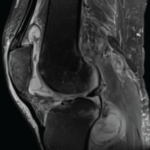A study found the continuation of tumor necrosis factor inhibitor (TNFi) treatment in patients with chronic rheumatic inflammatory diseases after pregnancy diagnosis was not associated with worse outcomes than those who discontinued treatment with TNFi’s.




